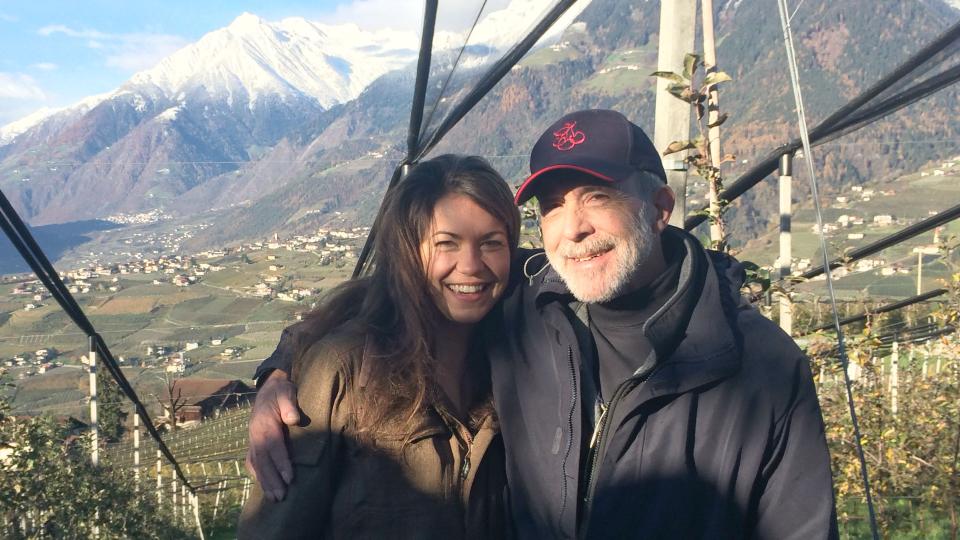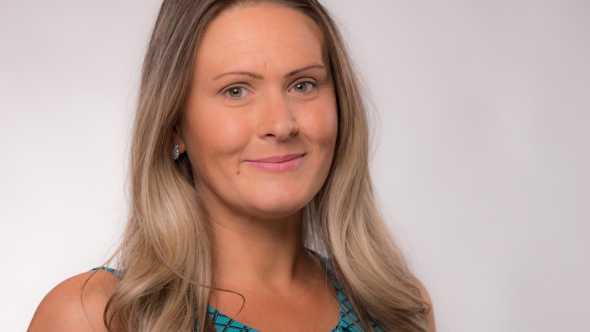Why Are There so Few Women in Farming?
Although women have been working farms since the hunter and gatherer days (gathering, after all, was an early farming technique), only 14% of U.S. farms are headed up by a woman, according to the USDA.
With that in mind, what is it like for young female growers entering the industry?
“My trees definitely do not care about gender, and I do not really see how gender is a necessary component for learning how to manage an orchard and a business,” says Adele Wunsch, part of multi-generational Wunsch Farms (growers of apples and black sweet cherries in Traverse City, MI), who is working on her master’s degree from Michigan State University.
We spoke with two young women in the industry about the topic: Wunsch and Stephanie Pharris, Supply Chain Specialist with Duncan Family Farms (growers of organic vegetables in Buckeye, AZ).

Adele Wunsch with her father, Josh, pose for a photo during the IFTA 2014 Italy Study Tour.
In what ways does gender matter?
Wunsch: I believe it is fundamental to maintain a workplace that is inclusive and safe.
Our crew is gender diverse and, as the only female leader in our business, I feel acute responsibility for ensuring that the women on my team are provided equal treatment and opportunity. I’ve lived, worked, and studied in enough places off the farm to know the sting of discrimination. When I am on the farm, my leadership position grants me the opportunity and responsibility to create an inclusive environment.
Pharris: Being female in the ag industry is a challenge. I personally feel agriculture has lagged behind other industries in the area of female leadership roles and is just now beginning to change. I am very fortunate to work for a grower with well-represented female leadership. If you go to the big produce expos, women are well represented with marketing and sales teams attending. However, at grower conferences, there are usually very few women in attendance and almost never a female panelist or presenter of any kind.

Stephanie Pharris
What do you think it will take to attract more women to the growing industry?
Wunsch: I was born into this industry, and reflecting back on the narratives I heard growing up, I doubt I would have worked in agriculture if I had grown up outside of it. It is important that women feel there is an opportunity for them in the industry, but I think it starts with undoing the gender stereotypes that are pushed onto children and teenagers.
If you wanted to determine why only 14% of farm owners are female, an in-depth analysis of gender studies in U.S. society would be required. I am no expert in this area, but I do grasp that this disproportional ratio of land ownership is interconnected to the social, economic, and political systems that perpetuate multiple forms of inequality. I do not think that this lopsided statistic will even out until broader, systemic change occurs.
Pharris: It will take education about the industry, its importance, and the many career opportunities that exist within it. Ag tech is having a rapid impact on our industry and is bringing with it a need for individuals with skill sets that agriculture hasn’t had a need for before now.
We need to expand agriculture education in schools so future generations can learn the challenge of meeting the world’s food needs and how to become a part of it. If we can showcase emerging ag technologies that are marrying the art and science of farming, we can show young people there is so much more to ag than they may think.
What would you like to see changed?
Wunsch: I would really like to see the discussion about gender and equality expand. It is somewhat odd to me that I am often expected to have an opinion on how to include more women in the industry, and my brother or other male peers are never asked such a question. It seems to perpetuate stereotypes to expect only women to be concerned about the issue.
My strongest advocates were men, and I am sure that if asked, they could provide relevant insight into how they have successfully mentored women in a male-dominated field.
Pharris: Personally, I would like to see more women at grower events within the industry. I think that will help highlight the need for more women on panels speaking at these events and showcase the expanding change in agriculture — and the importance of female representation within the industry.









